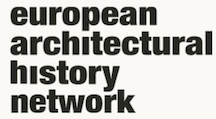Call for Papers
European Architectural History Network
Good Governance and the Built Environment of Late Medieval Cities (ca. 1200–1600)
Brussels, Belgium, 3-5 September 2025
Due By 7 April 2025
In the late Middle Ages, cities were governed through constant dialogue. Rulers, nobility, citizens and other social groups all found ways to shape urban governance, each articulating complex views on what “good” governance entailed. In order to meet expectations of justice, protection, economic welfare, and the common good, all the aforementioned individuals would often invest in the city’s built environment, either by initiating new architectural and infrastructural projects, or by securing the maintenance of existing ones.
The city as a built space thus required constant development, and in this upkeep and expansion, rulers and governors were attributed a specific responsibility. Scholarship has already extensively explored various policies initiated by rulers and governors for the construction and maintenance of the city’s built environment; Previous studies have, for example, drawn attention to the governmental structures set up in late medieval cities or have explored the legal measures implemented to control urban environments. Similarly, scholarly attention has also focused on individual architectural and infrastructural projects initiated by rulers and governors as a means to meet expectations regarding their governmental responsibilities. However, a systematic overview of how these tasks and obligations regarding the built environment of the city were linked to ideals of good governance is missing, as well as the scope to set individual cases within an overarching framework.
This conference seeks to address this lacuna by asking specifically how the built environment of late medieval cities was conceptualised and physically shaped in relation to ideals of good governance. The focus will be on urban centers in diverse geographical regions (from North-Western Europe and the Mediterranean to the Middle East), and this in the period of 1200 to 1600.
We invite contributions coming from a variety of disciplines (architectural history, art history, literary history, political history and so on) to explore how—and to what extent— building was integral to governing a late medieval city.
Themes may include, but are not limited to:
• The relationship between political and architectural thought with regards to good governance and the construction and maintenance of the city’s built environment.
• The various media (texts, images, etc.) through which political thinking on good governance with regards to the city’s built environment was expressed.
• The tasks, responsibilities, and expectations towards rulers and governing bodies in the construction and maintenance of a city’s built environment.
• The means through which rulers and governors hoped to translate policy for the city’s built environment into practice (administrative bodies, legal measures, direct patronage).
• Specific architectural and infrastructural projects initiated and overviewed by rulers, governors, but also other urban groups, and their relation to political ideals (such as authority, the common good, urban health, justice…).
• The overlapping jurisdictions and governmental structures within late medieval cities and their impact on the construction and maintenance of the urban built environment.
Please send an abstract (max 500 words) with a short CV (2 pages max) to governingandbuildingthecity@gmail.com by 7 April 2025. Contributions should be in English and the result of original research. Contributions should not be previously published or in the process of being published. Notifications of acceptance will be sent out by the end of April. The conference will be held between 3-5 September 2025 in Brussels.
The conference is organised within the research project “Governing and Building the City: Mirrors-for-Magistrates as a lieu for theoretical reflection on architecture (1200-1600)” funded by an Incentive Grant for Scientific Research (FNRS, Belgium).
For more information on the project: see http://governingandbuilding.com.
Organisers:
• Nele De Raedt, professor of history, theory and criticism of architecture, LOCI/LAB, UCLouvain
• Minne De Boodt, post-doctoral researcher in political history, LOCI/LAB, UCLouvain/ Research Group Medieval History, KU Leuven
• Philip Muijtjens, post-doctoral researcher in art history, LOCI/LAB, UCLouvain
For more information on the call for papers, visit https://eahn.org/2025/03/good-governance-and-the-built-environment-of-late-medieval-cities-ca-1200-1600/

